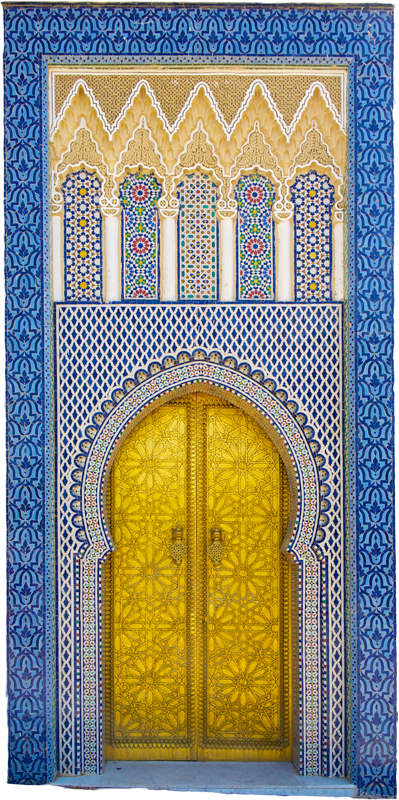LEÇON 4 / Intermediate

THE PLURAL AND THE FEMININE OF ADJECTIVES

The plural and the feminine forms of adjectives are very similar to the plural and feminine forms of nouns.
HOW DO YOU FORM THE PLURAL OF ADJECTIVES?
Most plural adjectives are like most plural nouns: you form them by adding an “s” to the end of the singular form.
petit ![]() petits (small)
petits (small)
amusant ![]() amusants (amusing)
amusants (amusing)
stupide ![]() stupides (stupid)
stupides (stupid)
However, there are several exceptions to this rule:
1. Adjectives ending in “-s” or “-x” do not change in the plural form.
français ![]() français (French)
français (French)
gris ![]() gris (grey)
gris (grey)
vieux ![]() vieux (old)
vieux (old)
2. Adjectives ending in “-al” in the singular end in “-aux” in the plural.
international ![]() internationaux (international)
internationaux (international)
normal ![]() normaux (normal)
normaux (normal)
HOW DO YOU FORM THE FEMININE OF ADJECTIVES?
Most feminine adjectives are like most feminine nouns: you form them by adding an “e” to the end of the masculine form.
grand ![]() grande (big)
grande (big)
intelligent ![]() intelligente (intelligent)
intelligente (intelligent)
joli ![]() jolie (pretty)
jolie (pretty)
Once again, there are several exceptions to this rule:
1. Masculine adjectives ending in “-e” do not change in the feminine form.
facile ![]() facile (easy)
facile (easy)
jeune ![]() jeune (young)
jeune (young)
However, masculine adjectives ending in “-é” add an “e” like all other regular adjectives.
fatigué ![]() fatiguée (tired)
fatiguée (tired)
âgé ![]() âgée (aged)
âgée (aged)
2. Masculine adjectives ending in “-x” change to “-se” in the feminine form.
nerveux ![]() nerveuse (nervous)
nerveuse (nervous)
heureux ![]() heureuse (happy)
heureuse (happy)
3. Masculine adjectives ending in “-f” change to “-ve” in the feminine form.
naïf ![]() naïve (naive)
naïve (naive)
neuf ![]() neuve (new)
neuve (new)
4. Masculine adjectives ending in “-er” change to “-ère” in the feminine form.
premier ![]() première (first)
première (first)
étranger ![]() étrangère (foreign)
étrangère (foreign)
5. Most masculine adjectives ending in “-l” or “-n” double the final consonant before an “-e” in the feminine form
italien ![]() italienne (Italian)
italienne (Italian)
cruel ![]() cruelle (cruel)
cruelle (cruel)
bon ![]() bonne (good)
bonne (good)
Exceptions:
américain ![]() américaine; spécial
américaine; spécial ![]() spéciale
spéciale
6. These masculine adjectives have an irregular feminine form that must be memorized.
beau ![]() belle (beautiful) frais
belle (beautiful) frais ![]() fraîche (fresh)
fraîche (fresh)
blanc ![]() blanche (white) long
blanche (white) long ![]() longue (long)
longue (long)
doux ![]() douce (soft) nouveau
douce (soft) nouveau ![]() nouvelle (new)
nouvelle (new)
fou ![]() folle (crazy) vieux
folle (crazy) vieux ![]() vieille (old)
vieille (old)

ATTENTION!
To form the feminine plural of these adjectives, add an “s” to the feminine singular.
blanche ![]() blanches normale
blanches normale ![]() normales
normales
longue ![]() longues nouvelle
longues nouvelle ![]() nouvelles
nouvelles
A FEW SPECIAL FORMS FOR MASCULINE ADJECTIVES
“Beau,” “vieux,” “nouveau” become “bel,” “vieil,” “nouvel” in front of singular, masculine nouns starting with a vowel or an “h.” You may have noticed that most other adjectives follow the nouns they describe.
 EXAMPLES
EXAMPLES
un beau cheval a pretty horse
un bel arbre a pretty tree
un bel hôpital a pretty hospital
un vieux pont an old bridge
un vieil homme an old man
NOTE:
les vieux hommes the old men
de beaux arbres beautiful trees

